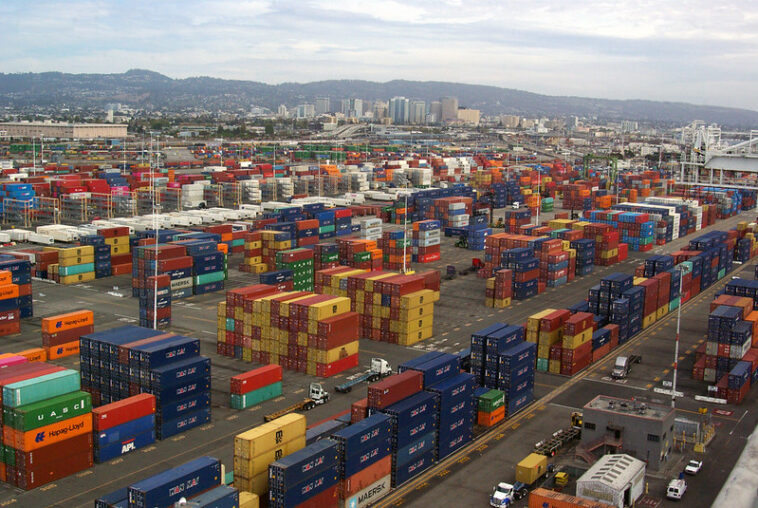The global economy finds itself poised on the edge due to impending trade disputes unleashed by the Trump administration. After an intense period of three months filled with negotiations, the United States is determined to disclose its new trade pacts with its principal counterparts by the 9th of July. However, the announcement of escalating tariffs, followed by frequent policy fluctuations, has begun to destabilize the basis of worldwide economic growth.
A noticeable example of this instability can be seen at the Port of Oakland, California. As of May 20, 2025, a substantial 14.7% reduction was observed in the port’s total freight volume in comparison to the previous month. This decline occurred in the aftermath of the implementation of tariffs by the American government.
The anxiety amongst America’s trade partners is soon to be relieved as they will understand their standing post the announcement. A tumultuous three-month period filled with embittered discussions precedes this awaiting declaration. The United States is set to reveal, by July 9, new trade deals with the most significant economies across the globe.
In a statement issued on the 1st of July, President Donald Trump assured that he had no intention of prolonging the dialogues. Treasury Secretary Scott Bessent disclosed that the reins of the discussions are being held over 15 to 18 crucial agreements with dominant partners. Since the commencement of conversations in early April, only two contracts have been formalized – one with the United Kingdom and the other with Vietnam.
Additionally, a consensus was reached with China, aimed at lowering the excessive tariffs both nations had previously placed on one another. The debate centered around import duties has been intensifying, with the possibility of ‘30% or 35%’ being levied on imports originating from Japan. This is in comparison with the previously stated 24% rate in April, which was later criticized by Trump for Japan’s reluctance to pledge purchases of American rice.
This week, Maros Sefcovic, the European commissioner for trade, is set to arrive in Washington with an objective to secure a deal that could diminish U.S. customs barriers in crucial industries such as automotive and steel. The initial reverberations of the US President’s tariff declarations were strong but what followed led to greater confusion with his constant backtracking on trade policies. The effect on investors was evident as they were leaft unsettled.
An air of uncertainty looms over companies, compelling them to delay investments and potentially inducing an economic downturn. The extent of this economic despair is reflected in the performance of the dollar which recorded its worst half-yearly performance in the last five decades.
The shockwaves of this situation can be traced in the financial market. Specifically, the dollar index, which calculates the U.S. currency’s value against a collection of other major currencies, underwent a significant decrease of 10.8% in the first half of the year. This was a direct consequence of the loss in confidence caused by the tumultuous situation.

